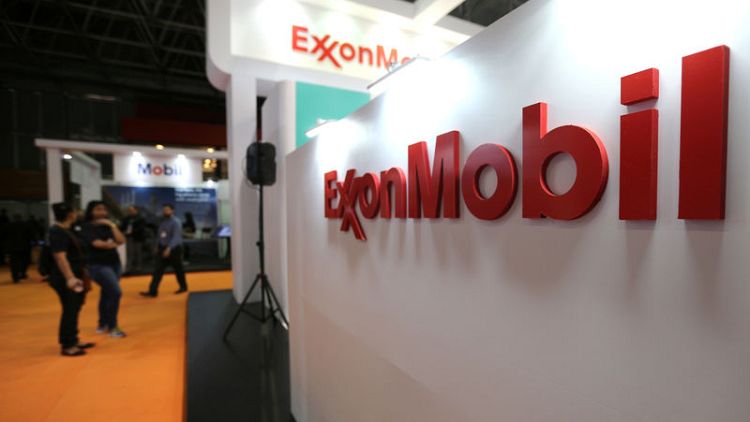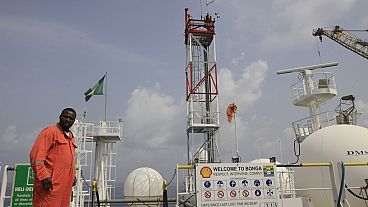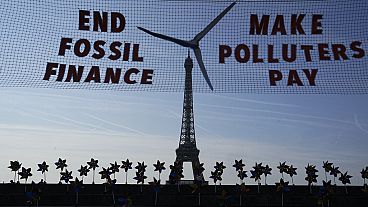DALLAS (Reuters) - Exxon Mobil Corp shareholders on Wednesday rejected a proposal that would have split the roles of the chief executive and board chairman at the largest publicly-traded oil producer.
Some shareholders had rallied behind that proposal after Exxon was allowed by the U.S. Securities and Exchange Commission to remove a climate change measure from its proxy ballot. The proposal won 41% of the vote at the company's annual meeting in Dallas, Texas, on Wednesday.
The proposal would not have taken effect under Chief Executive Darren Woods, but would have been phased in for future CEOs.
Shareholders also voted against a proposal that would have made it easier for shareholders to call special meetings, though that won 42% of the vote - the most successful shareholder proposal on the proxy. Measures that urged the board to create a special committee on climate change; report the risks of climate change at its U.S. Gulf Coast chemical plants; and report its political contributions and lobbying were also defeated.
Shareholders approved a full slate of 10 nominees to the company’s board of directors.
Exxon under Woods has launched major expansion programs to find and produce new reserves of oil and natural gas, as well as to expand the company’s refining and chemical footprint. It has projected shale production of 1 million barrels per day in the Permian Basin, the top U.S. shale field, as early as 2024.
Shareholders in recent years have pressed Exxon to define a path towards meeting the goals of the 2015 Paris climate agreement to limit global warming, but the company has so far not committed to any targets.
"Engagement on climate is important, but working on solutions through fundamental research and development for new technologies is also important," said Woods. He pointed to a recent $100 million commitment by Exxon to partner with the U.S. Department of Energy's national labs to research and bring lower-emission technologies to commercial scale.
The Church Commissioners for England, the endowment fund of the Church of England, as well as New York State Comptroller Thomas DiNapoli who manages the state’s pension fund, had urged other shareholders to vote in favour of an independent chairman. They pushed for the protest vote after the Securities and Exchange Commission said that Exxon was not required to let investors vote on a shareholder submission calling on the company to set emissions targets “aligned with the greenhouse gas reduction goals established by the Paris climate agreement.”
Exxon had called the resolution misleading, substantially implemented and an attempt to interfere with its management responsibilities.
Edward Mason, head of responsible investment for the Church Commissioners for England, who presented two shareholder resolutions on Wednesday, said Exxon's European oil rival BP PLC has taken on "intensive, meaningful and independent director-led," work on climate supported by both the company and investors. Exxon, though, has been in "open conflict about climate strategy and disclosure," with its investors, Mason said.
More than 50 people organised by environmental group 350 Dallas held signs and chanted outside the hotel entrance to protest Exxon's climate policies.
"The climate crisis is real and they have contributed to it," said Olinka Green, 50, of Dallas, who held a sign that said, "There is no Planet B."
Shares were down 1% on Wednesday.
(Reporting by Jennifer Hiller; Editing by Nick Zieminski)



